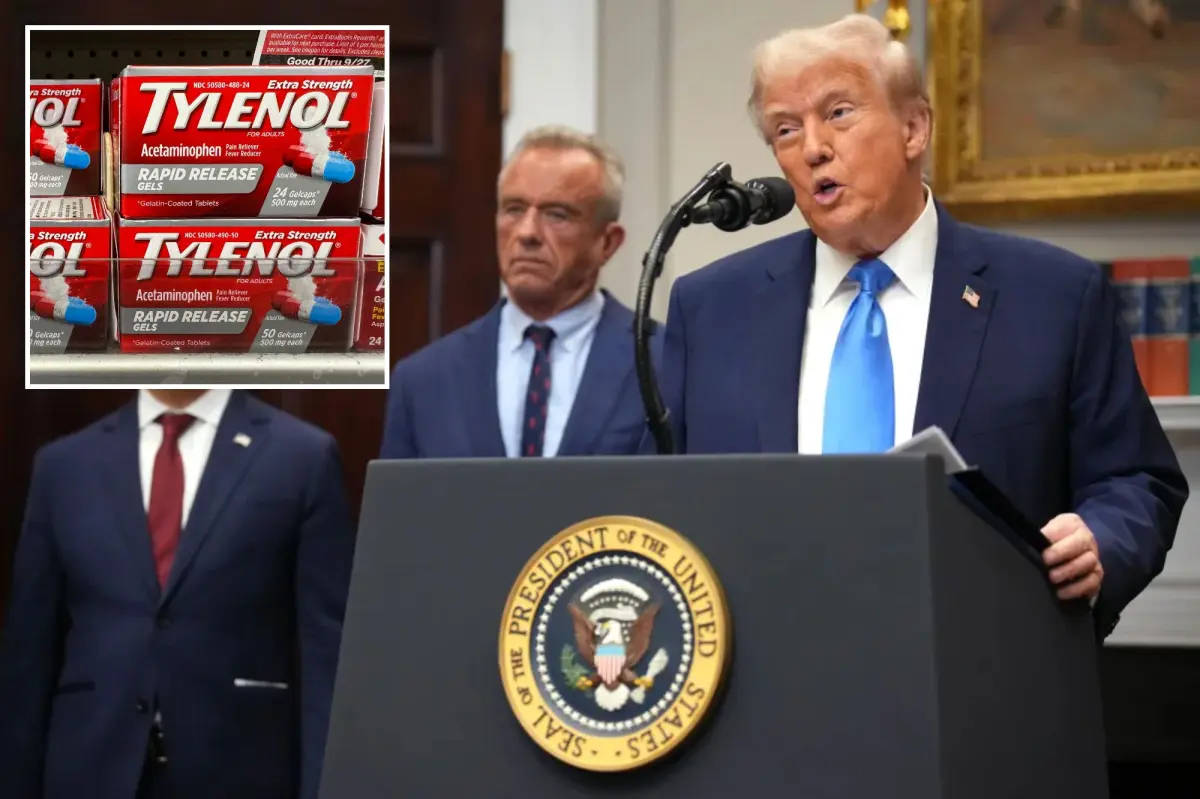
DiYES International School – Trump ignited fresh controversy after warning parents against giving Tylenol to children under any circumstance. In a post on his Truth Social platform, he claimed parents should avoid the drug entirely, offering no scientific proof for his claims. The comment immediately sparked concern among pediatricians and families across the nation. Trump’s remarks arrived just days after he criticized Tylenol for use during pregnancy, insisting that pregnant people should avoid it. The American Academy of Pediatrics responded by reiterating that Tylenol, or acetaminophen, remains safe for children to use when properly dosed. However, Trump’s influence has made many second-guess long-standing medical advice. Confusion spread rapidly as misinformation blended with growing public skepticism toward pharmaceutical companies. His post added another layer to his ongoing criticism of established health protocols. Despite the outcry from doctors and researchers, Trump’s message went viral across social platforms, fueling debate among concerned parents and health professionals alike.
Trump’s warning did not stop at childhood use. During a press conference, he claimed that Tylenol should not be used during pregnancy, regardless of the symptoms. He encouraged pregnant people to avoid all forms of medication for fever and pain, telling them to tough it out instead. Trump made the statement while standing beside Health and Human Services Secretary Robert F Kennedy Jr. The pair amplified an unproven link between acetaminophen and autism. Yet major health organizations like the AAP and CDC continue to back Tylenol as the safest option during pregnancy when compared to alternatives like ibuprofen. Trump’s comments contradict decades of research and medical consensus. A 2024 study of over 2 million Swedish siblings found no increased risk of autism tied to prenatal acetaminophen use. Still, Trump’s statements received significant attention and concern, especially from families who rely on medical professionals to guide health decisions. The president’s bold claims highlight the growing tension between politics and public health advice.
“Read about: How Did Cuba Master Child Health? The Answer Will Surprise You!”
In response to Trump’s remarks, doctors and researchers voiced strong opposition. The American Academy of Pediatrics stressed that Tylenol remains an essential tool for treating fever in children, especially when prescribed by pediatricians. Experts warned that fear-driven messages could harm families who avoid necessary treatments. They emphasized that scientific studies, not political rhetoric, should guide health decisions. Tylenol-maker Kenvue Inc also issued a statement reaffirming that independent research supports the safety of acetaminophen. Confusion has only grown as more people try to understand what information to trust. Many health professionals expressed concern that statements like Trump’s could undermine vaccination rates and treatment adherence. Although the controversy may energize his base, it has alarmed many in the medical community. Trump’s influence over millions of followers gives his words the power to disrupt public confidence in long-accepted health guidance. While no link between Tylenol and neurodevelopmental disorders has been found, the debate has taken on new life in political discourse.
“Read more: Elon Musk Reveals Shocking Truth He Hopes to Uncover About Aliens on Mars!”
Beyond pain relievers, Trump reignited his campaign against childhood vaccines. In the same Truth Social post, he called for a breakup of the measles, mumps, and rubella shot into individual injections. He also argued for delaying the hepatitis B vaccine, challenging the CDC recommendation that newborns receive the dose within 24 hours of birth. His views echo long-standing beliefs within the anti-vaccine movement. Pediatricians have criticized this suggestion as dangerous, saying that delaying essential vaccines could lead to outbreaks of preventable diseases. The AAP has consistently maintained that early administration of hepatitis B vaccine is critical to preventing long-term complications. Despite expert warnings, Trump’s platform enables these ideas to circulate widely. He continues to question foundational aspects of modern healthcare without providing data or evidence. The controversy surrounding his vaccine remarks follows years of tension between science advocates and political figures who question established immunization protocols. As with his Tylenol claims, Trump’s words are seen as disruptive and potentially harmful by the medical community.
As Trump continues to challenge medical standards, public confidence in healthcare guidance finds itself at risk. Parents who see conflicting messages from political leaders and pediatricians may hesitate to follow through with doctor recommendations. This uncertainty can lead to worse health outcomes for children. Trump’s stature allows his voice to dominate discussions, even when his claims lack evidence. The growing popularity of conspiracy theories online further complicates matters. Misinformation can travel faster than correction, especially when it comes from high-profile figures. Doctors urge parents to stay informed through trusted medical sources. They warn that a breakdown in health communication could spark preventable crises, from untreated fevers to lower vaccination coverage. Trump’s attacks on Tylenol and vaccines have added fuel to an already volatile mix of distrust and misinformation. The FDA and CDC must work harder than ever to reinforce confidence in science-backed care. Meanwhile, debates rage across households, media outlets, and hospital corridors about whom to believe.
This article is sourced from www.bloomberg.com and for more details you can read at diyesinternational
Writer: Sarah Azhari
Editor: Anisa